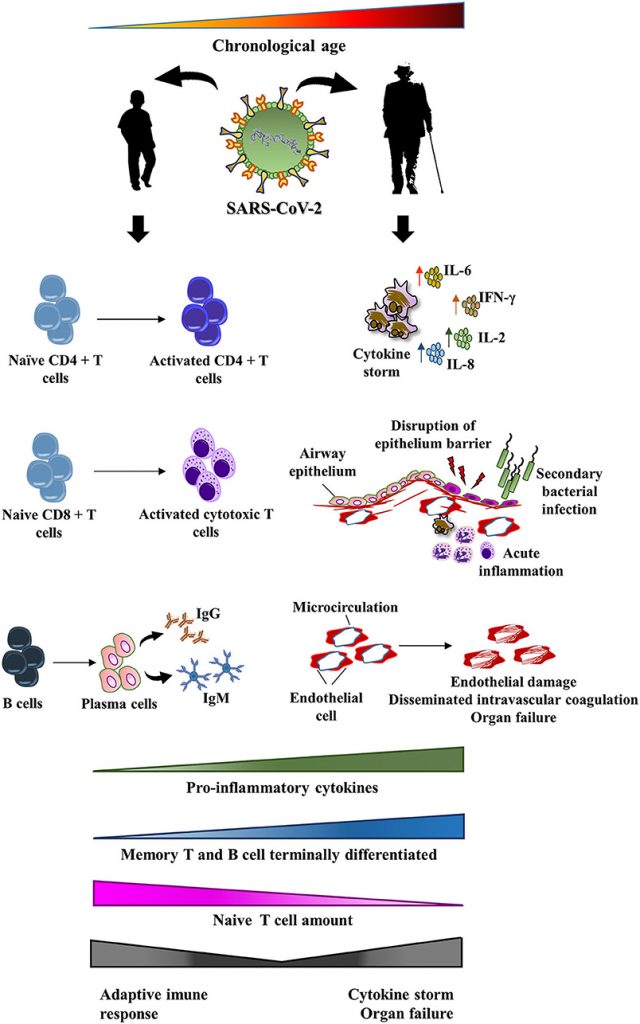Front. Immunol. 2020 Aug 7;11:1748.
Authors
Cunha LL, Perazzio SF, Azzi J, Cravedi P, Riella LV
Abstract
Elderly individuals are the most susceptible to an aggressive form of coronavirus disease (COVID-19), caused by SARS-CoV-2. The remodeling of immune response that is observed among the elderly could explain, at least in part, the age gradient in lethality of COVID-19. In this review, we will discuss the phenomenon of immunosenescence, which entails changes that occur in both innate and adaptive immunity with aging. Furthermore, we will discuss inflamm-aging, a low-grade inflammatory state triggered by continuous antigenic stimulation, which may ultimately increase all-cause mortality. In general, the elderly are less capable of responding to neo-antigens, because of lower naïve T cell frequency. Furthermore, they have an expansion of memory T cells with a shrinkage of the T cell diversity repertoire. When infected by SARS-CoV-2, young people present with a milder disease as they frequently clear the virus through an efficient adaptive immune response. Indeed, antibody-secreting cells and follicular helper T cells are thought to be effectively activated in young patients that present a favorable prognosis. In contrast, the elderly are more prone to an uncontrolled activation of innate immune response that leads to cytokine release syndrome and tissue damage. The failure to trigger an effective adaptive immune response in combination with a higher pro-inflammatory tonus may explain why the elderly do not appropriately control viral replication and the potential clinical consequences triggered by a cytokine storm, endothelial injury, and disseminated organ injury. Enhancing the efficacy of the adaptive immune response may be an important issue both for infection resolution as well as for the appropriate generation of immunity upon vaccination, while inhibiting inflamm-aging will likely emerge as a potential complementary therapeutic approach in the management of patients with severe COVID-19.
Link to article
Figure: Potential impact of immunosenescence on the pathogenesis of COVID-19. SARS-CoV-2 infection may affect all age ranges, from children to the elderly. Among children, a mild-symptom disease usually occurs. They frequently crush the viral infection through an effective adaptive immune response. However, the remodeling of the immune system that happens with aging may lead to modifications in both adaptive and innate immunity. The final result of these changes may trigger a maladaptive immune response against SARS-CoV-2. In fact, the elderly are an at-risk group to a more aggressive disease that includes cytokine release syndrome, disruption of intrinsic lung defense, secondary bacterial pneumonia, endothelial injury, and end organ damage.

